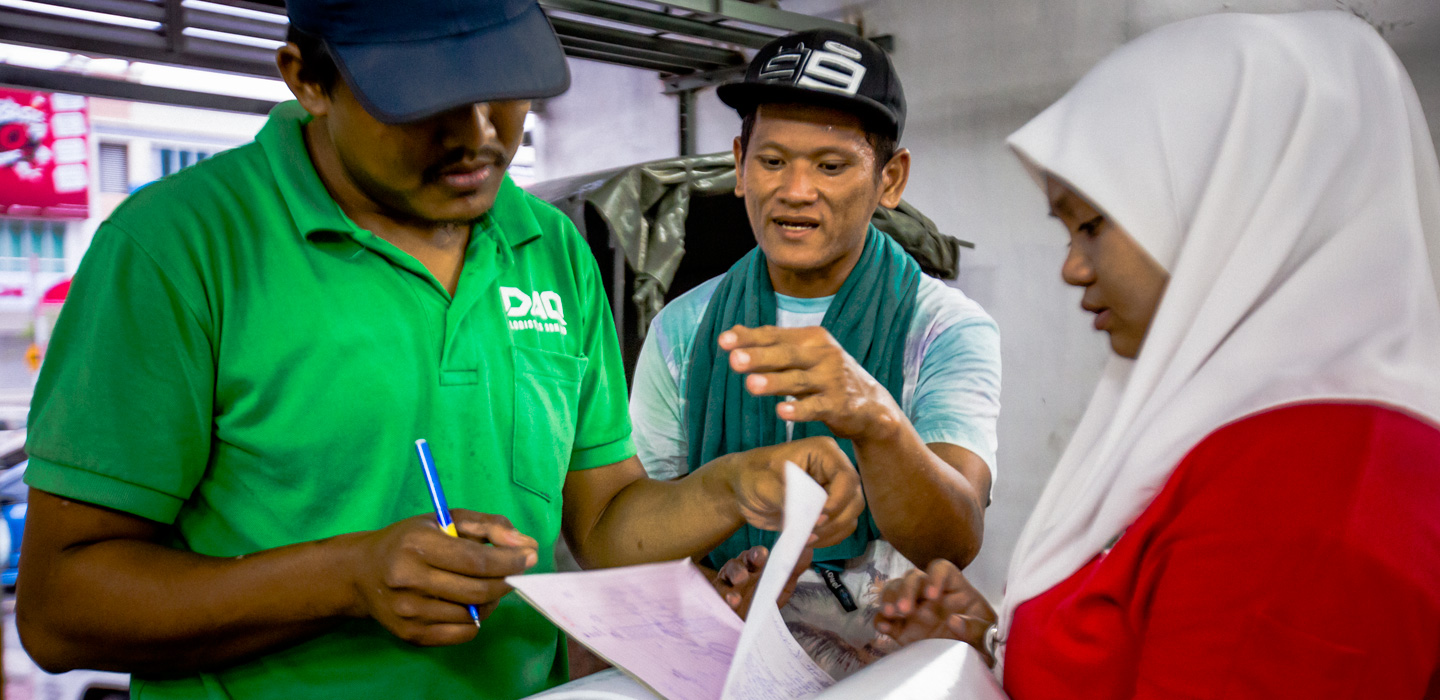Five ways organizations can help countries build agile and inclusive responses to COVID-19
IFAD Asset Request Portlet
Asset Publisher
Five ways organizations can help countries build agile and inclusive responses to COVID-19
Estimated reading time: 4 minutes
©IFAD/Francesco Cabras
Much has already been written on the impact of COVID-19 on agriculture, especially in rural areas. Social distancing has disrupted farmers’ access to inputs, services and markets. Many rural households have lost crucial off-farm income sources. Estimates have suggested that more devastating impacts are still to come, with the loss of tens of millions of jobs around the globe and half a billion people at risk of falling (back) into poverty.
Yet, challenges and opportunities are different in different places, for different food products and for different people. They can also change daily, in response to local circumstances, and throughout the cropping season. How, then, can we enhance local capacity to respond to this emergency in an agile and inclusive manner?
The experience of the Ebola crisis in 2015 and early lessons from China’s response to COVID-19 show that it is crucial to establish strong communication and institutional mechanisms between stakeholders, and to quickly identify and address emerging issues. Here, we’ve listed 5 key steps that organizations can take to help countries build these mechanisms. Although we’ve drawn heavily from our experiences in the Asia-Pacific region, these actions are applicable worldwide.
- Quickly restore communication channels within development initiatives and with other actors.
Social media and digital solutions are especially helpful here. Many IFAD-supported programmes, for instance, have created WhatsApp groups with lead farmers, allowing them to identify issues as they occur and develop innovative solutions.
Farmers, markets and suppliers are also using online platforms and apps such as geo-mapping tools to build connections. In Cambodia, the IFAD-assisted ASPIRE project plans to use geo-mapping to locate and trace beneficiaries. Similarly, communities of practice have played a crucial role in allowing stakeholders to share problems, knowledge and best practices across countries and projects, enabling quick learning and the potential scale-up of solutions.
The information collected via these tools and networks can then help shape inclusive responses from governments and development partners. - Build strong outreach systems – and make sure they’re decentralized and inclusive.
As useful and effective as new technologies can be, many poor and remote areas still lack access to the internet and cannot use mobile-based tools. In these cases, community resource persons can play a key role in information flow and can feed into the local response. For instance, in southern India’s Andhra Pradesh, where the government monitors harvest plans and logistical issues daily, extension workers in gram panchayats (village-level local bodies) are being assisted by volunteers, each of whom reaches about 50 households. IFAD invests significantly in building similar inclusive outreach systems, relying on community-level institutions and resource persons. - Invest in inclusive coordination mechanisms at different levels.
Back in February, the Government of Mizoram, in northeast India, set up several task forces to deal with the various impacts of COVID-19 on everyday life. The government was thus able to make early decisions that allowed farmers to access planting material for the current sowing season. Similar task forces now exist in several other Indian states and at the national level.
Importantly, these mechanisms are able to escalate issues requiring government attention, enabling quick changes in policies and regulations. In India and other countries, IFAD works with FAO, WFP and other UN agencies to contribute to these systems. - Motivate and engage collective action based on quality information and planning.
The collation of information and possible responses can quickly shape a framework for collective, citizen-centric action. For example, in India’s southern state of Kerala, which has been one of the most successful in controlling the pandemic, 500 tonnes of pineapple was at risk of going to waste during the national lockdown – but a task force led by the state department of agriculture was able to develop contingency plans that engaged various actors, including farmers’ organizations.
Similarly, the Government of Bhutan asked each of its districts to develop a food security plan that accounted for the specific issues it expected to face due to COVID-19. These plans provided an entry point to validate the analysis and priority actions of partners, including IFAD. - Leverage organizations at both the local and national level.
Farmers’ organizations play a critical role in advocating for rural farmers and collectively flagging challenges and demanding solutions. In a time of crisis, this role is even more important.
Across the Asia-Pacific region, these organizations have been quick to reach out to their members and get a jump-start on analysing the situation, to offer targeted support, and to work with officials at various levels to ensure smallholders have a seat at the table.
In Bangladesh, the National Agriculture Technology Programme (a project assisted by IFAD and the World Bank) supports common-interest groups and federated larger producers’ organizations. The project’s investments in market access, transport, storage and farm mechanization have enabled farmers and rural entrepreneurs to respond to disruptions in the agricultural market system.
In India, farmer producers’ organizations have been recognized as important contributors to keeping the value chain going, ensuring access to markets and services for their members and contributing to the government response.
The Asian Farmers’ Association, an IFAD grantee, consistently amplifies farmers’ voices. Recently, it has promoted a series of powerful video messages from farmers in different countries that capture the challenges they currently face. It has also created a fundraising mechanism to support family farmers through the COVID-19 emergency and strengthen their resilience.
With robust, inclusive institutions and governance mechanisms, as well as digital innovation, we can craft locally relevant responses to insulate our food systems against shocks – whether from a health crisis or a natural disaster – and ensure that we leave no one behind. Today, we have an opportunity to learn from this crisis and make the investments that can help us build agile, inclusive and resilient institutions at the local and national level.
Note: The authors would like to thank Rasheed Sulaiman of AESA for his valuable insights, as well as organizations such as AESA and GFRAS for documenting their participants’ experiences.
Read more about IFAD’s response to COVID-19.
Publication date: 14 May 2020
